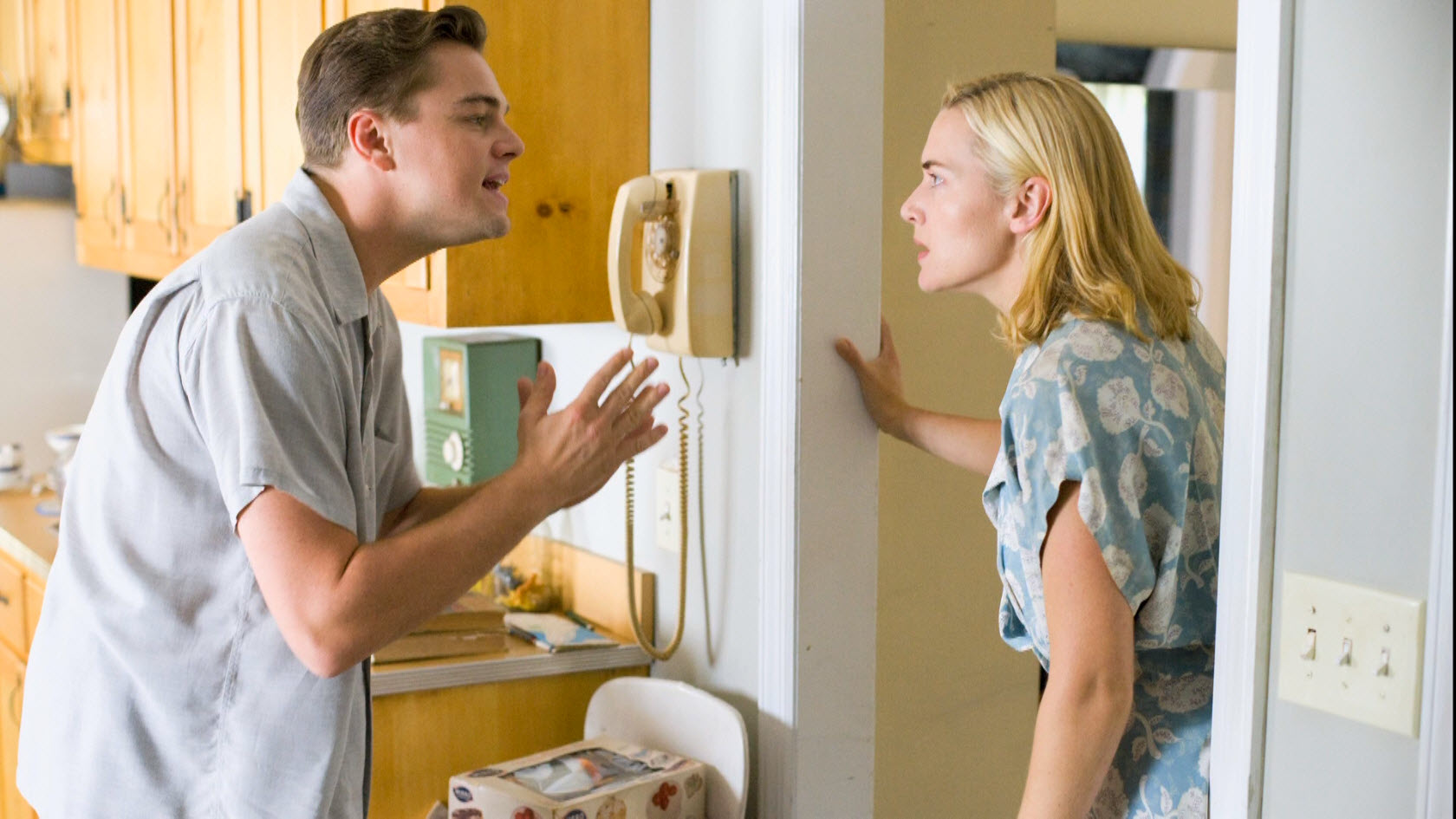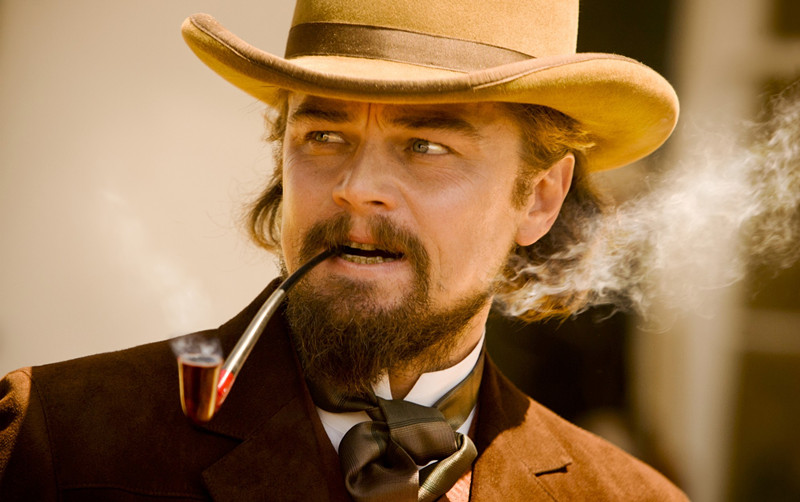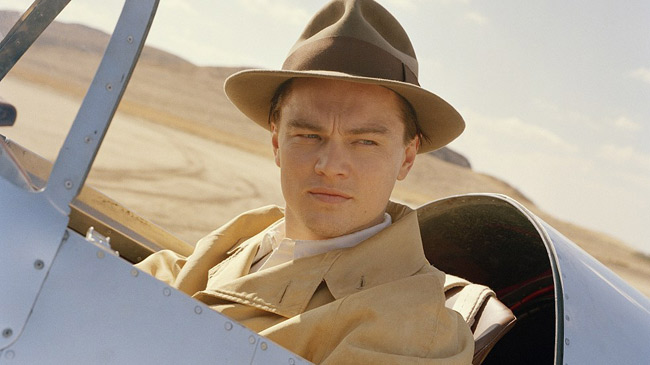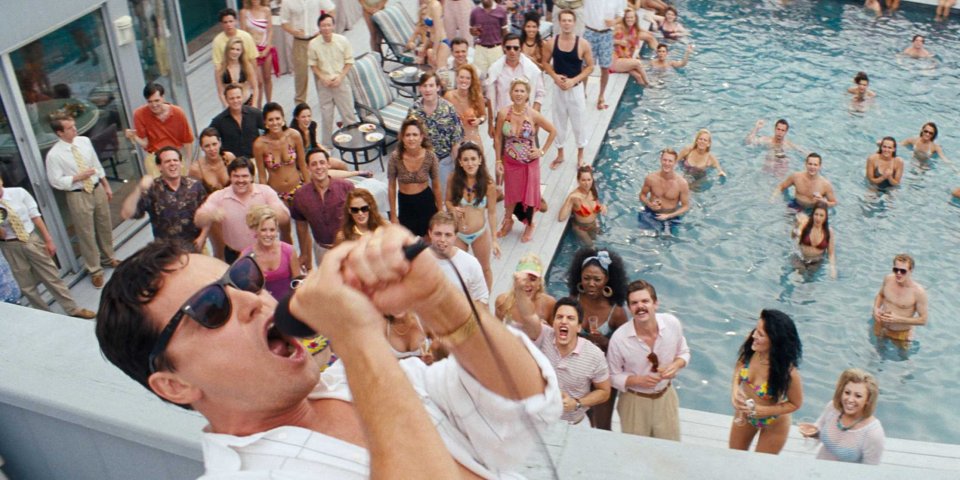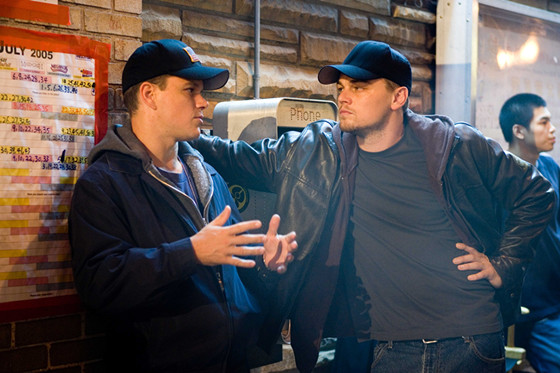5. Revolutionary Road (2008), dir. Sam Mendes
Adapted from Richard Yates’ novel of the same name, gifted director Sam Mendes’ Revolutionary Road is about April and Frank, a young couple living in the suburbs of 1950s Connecticut, attempting to manage their personal problems.
Revolutionary Road once again combined one of the most iconic pairs in Hollywood, Leonardo DiCaprio and Kate Winslet, and the result was overwhelmingly beautiful. If Titanic was the film that gave the two actors fame, Revolutionary Road was the one that gave them the spellbinding center stage. The director brilliantly delivers the audience a difficult film to watch, experience, and appreciate; it addresses realistic concepts and situations that most people purposely avoid.
Though the realistic episodes provide heart-wrenching drama, the film’s characterization creates the bold, memorable performance. April and Frank are vague shadows of people who surround normal individuals—the audience doesn’t just feel for them, they feel their experiences. The character’s situations and circumstances are most likely not similar or remotely familiar to viewers; however, the audience can still relate to the disappointment, the sense of unhappiness, and failure of human beings.
In the name of the American Dream, Revolutionary Road sells an authentic hard-boiled nightmare. Thus, in every single frame of the movie the leading pair, as well as the supporting cast (especially the brilliant Michael Shannon) astonishes the viewer and dazzles the screen. The acting in this movie is in its purest, rawest form.
In addition to the fantastic performances, Justin Haythe adapts Richard Yates’ terrific novel in an amazing screenplay. Like always, Sam Mendes is exemplary and in in complete artistic control. Roger Deakins’ cinematography is aesthetically atmospheric, and Thomas Newman’s score completes the film in a rather poignant manner.
4. Django Unchained (2012), dir. Quentin Tarantino
In Django Unchained, the camera focuses on a freed slave from Mississippi called Django (Jaime Foxx) and an English-speaking German bounty hunter, posing as a traveling dentist, named Dr. Schultz (Cristoph Waltz). The two happen to meet on the road whilst Django and other slaves are being trafficked. Schultz is searching for the Brittle brothers, and the only person who knows them is Django.
In exchange for helping Schultz collect a large bounty on the Brittle brothers, Schultz buys and then promises to free Django after they catch the outlaws the following spring. Schultz subsequently promises to teach Django bounty hunting and split the bounties with him if Django assists him in hunting down other outlaws throughout the winter. Django agrees on the condition that they also locate and free his long-lost wife (Kerry Washington) from a cruel plantation owner (Leonardo DiCaprio).
Quentin Tarantino, the most distinct and distinguished auteur of his generation, effortlessly constructs one simultaneous masterpiece after the other. He has yet to direct a terrible film, and Django Unchained is not an exception. Tarantino’s venture into the spaghetti western genre results, unquestionably, in the best western film of 21st century.
Notwithstanding the film’s linear structure, which is an unusual feature for Taratino, the majority of Django Unchained contains the entire gamut of cinematic elements: a bold, rich storyline; genius script and awe-inspiring direction; memorable and extraordinary conversations enriched with quirky dialogue; ‘Tarantino-ish’ mise-en- scène and gruesome violence; sturdy characters with aberrant names; long, moody sequences shot in daring style; and multiple, embedded backstories juxtaposed into one contemporary classic.
Despite the various components that create an extraordinary piece, probably the most outstanding elements of this film are the perfect casting and superb performances. Jamie Foxx is the lead, but the acting skills of Waltz, DiCaprio, and Tarantino’s right-hand actor, Samuel L. Jackson, are prime and stylish. DiCaprio is especially a revelation of greatness in the film; he is in a new, unimaginable avatar.
The versatile actor assumes the role of a traditional villain, but dazzles the audience with an assertive, malicious flair. DiCaprio is nothing less than amusing, brazen, conceited, volatile, and frightening. As usual, the artist produces high emotional intensity, which is perfectly channeled in the right direction by the master filmmaker, Tarantino. This must-see 165 minute long ride is apt to be the best entertainment any audience will view in years to come.
3. The Aviator (2004), dir. Martin Scorsese
The Aviator is the beautiful biographical narrative of a genius (Howard Hughes), played by a genius (Leonardo DiCaprio), and filmed by a genius (Martin Scorsese) in an extraordinarily genius manner. Focusing on the early successful years of the legendary filmmaker and iconic aviator, Hughes, the film is triumphant.
Like most of Scorsese’s films—the second collaboration between him and Dicaprio—is this ambitious period piece about a prodigy and a madman, who lived the quintessential Hollywood life. He made his mark as a filmmaker and became a legend as an aviator. Grand in its design, as it recreates an entire era of Hollywood, the film brings back the best days of some of the greatest names in Hollywood.
The Aviator is inspiring because it breeds the narrative of a multi-dimensional person, who lived on the edge of his various existences, always aspiring to be the best at what he created, which includes earning money and being the richest man in the world. Therefore, Hughes directs films to achieve his goal, but he is vehement about his other passion: aviation.
DiCaprio intently captures Hughes’ intensity whilst portraying Hughes’ genial personality— a millionaire rising briskly to the top of the world but is simultaneously haunted by his inner demons. Whilst success is a modest word for what Hughes achieves, the tag of an OCD patient doesn’t suffice the multitude and magnitude of his sufferings. Thus, DiCaprio methodically characterizes two different men: one external sensation and one internal failure.
In addition to DiCaprio’s versatility, Scorsese’s attention to detail is impeccable, and his inherent style of filmmaking is more than evident. Though the film transports the audience to different places psychologically and physically, its pace remains focused and steady. Despite its grandeur, The Aviator is as coherent as a monochromatic light.
2. The Wolf of Wall Street (2013), dir. Martin Scorsese
Terrance Winter adapted the screen play of Jorden Belfort’s memoir (of the same name), which recounts the life of a corrupt Wall Street stockbroker—his rise to fame, his pretentious glory days, and his perilous fall.
After being exposed to Scorsese’s previously directed illustrious classics like Taxi Driver (1976), Raging Bull (1980), Goodfellas (1990), Casino (1995), The Aviator (2004), and The Departed (2006), one may not proclaim that The Wolf of Wall Street is the best film Scorsese has ever made, but it is certainly one of the most fully realized films in the director’s filmography.
As mentioned previously, the film is not a renowned people pleaser (unlike Scorsese’s other greats), but it will polarize people, as it has done with me. Whether someone loves it or hates it, The Wolf of Wall Street will generate an extreme reaction, just like the three hour octane ride itself.
The basic scenario of this enigmatic piece is thus: Jordan Belfort (Leonardo DiCaprio) is a man who begins his life in the seventies, and in the process, he makes some money and a name for himself. Even though Belfort loses everything, he turns his life around and discovers something much more profound.
Compelling life discovery is a recurring theme in all of Scorsese’s movies, and DiCaprio—in his film collaborations with Scorsese—masters this feat; thus the actor and director are usually sharing the filmic glory. In this berserk joyride to “Jordonville,” however, DiCaprio is, undoubtedly—without question or explanation—in the driver’s seat. The actor’s insanely outrageous acting masters the film maverick’s direction and his plethora of other talents.
DiCaprio’s profane performance (and appearance) will give the viewers the best trip of their normal lives. The audience, after immersing themselves in the drama, will feel like they’ve been anchored to a rocket and launched into an unknown dimension of DiCaprio madness. Though it seems terrifying, the ride is sweet; so sweet that the audience cannot—will not—divert their eyes for single moment. Besides, even if they wanted to look away, he doesn’t allow them.
Usually after watching amazing films, people often declare that these aren’t just movies, they are experiences. Thus to DiCaprio, I—a humble cinephile—decree: The Wolf of Wall Street was the best three hour experience of my entire life. Now, how’s that for a worthy praise?
1. The Departed (2006), dir. Martin Scorsese
Inspired by Hong Kong’s Infernal Affairs, The Departed chronicles the atypical “good-cop-bad-cop” scenario. Undercover Boston state cop, Billy (Leonardo DiCaprio), is an infiltrator of an Irish gang whose mob boss is the notorious Frank Costello (Jack Nicholson); Colin Sullivan (Matt Damon) is an intelligent cop and Costello’s right-hand mole. Unbeknownst to each other, Damon and DiCaprio fiercely compete to track down and identify the other before either are exposed to the enemy.
This is an important film for many reasons. First and foremost, it has one of the best film lines of all time: “la di fucking da”—even if it is Mark Wahlberg who gets to say it. Second, it won Scorsese his much awaited and well-deserved Oscar. (It took thirty years for the American Academy Awards to realize what Cannes already did in 1976 with Taxi Driver.)
Though there have been many great crime movies about gangsters, organized crime, and police corruption, The Departed is one of the rare films about the police department and the dichotomy of its recruits.
Despite some of Scorsese’s great filmmaking efforts of the 1990s and 2000s, The Departed is the one film that truly ranks among the lineage of his remarkable trio of Taxi Driver (1976), Raging Bull (1980), and Goodfellas (1990). Nearly perfect, The Departed boasts some of the most skillful performances by one of the biggest and most talented ensemble casts ever concocted for the crime genre.
Leonardo DiCaprio, Matt Damon, Jack Nicholson, Alec Baldwin, Mark Wahlberg, Martin Sheen, Vera Farmiga, and Ray Winstone all give some of the most memorable presentations, for the film looks and feels like a grand musical number. It has a rhythm and a tone to which the characters dance, and is aesthetically created by the wizard behind the curtain, Martin Scorsese.
Akin to other Scorsese films, The Departed is highly energizing and entertaining. The film’s astounding diegesis, however, drastically differs from Scorsese’s previous works—the theme it incorporates is densely layered, extravagantly violent, excessively profane, and powerfully gripping.
As far as filmic characterization, DiCaprio performs one of the most mature roles of his dramatic film career. Billy, the unknown victim (even to himself), is simultaneously feared and frightened; he is honest, yet conflicted; he was a rat and he was trying to catch the rat. He is like the child yearning to be loved, but always watching his own back. He has a constant sword hanging over his head—in one scene, he wants to end it all, but in the next, he desires to live.
He wants “out,” but some internal craving pulls him back in order to finish what he started. Billy unremittingly alters himself too many times to various people that toward the conclusion, all he strives for is his own identity. The actor, however, achieves these feats with a grace, trumping his career as one of the most versatile actors in Hollywood.
